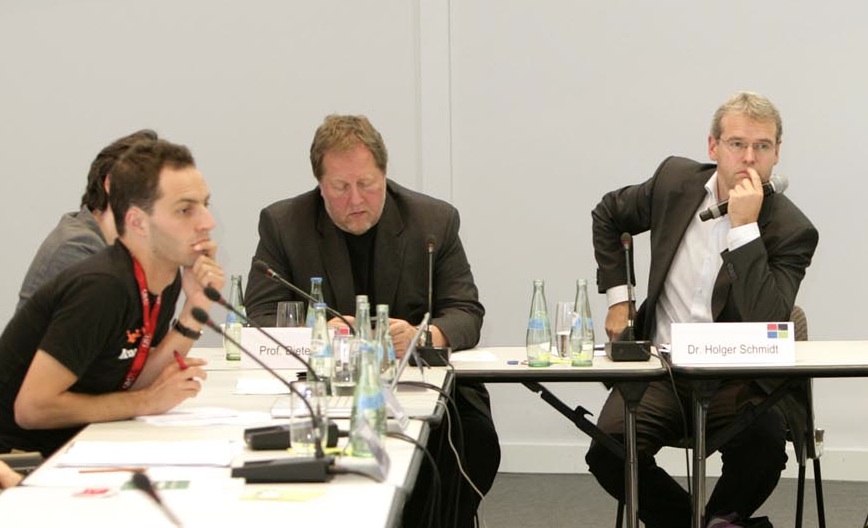
I’ve had a few interesting experiences with what I would call the media establishment over the last few weeks, notably when asked to present the atheist bus campaign at Medienforum.NRW in Köln and at the European Communication Summit in Brussels. Köln was a panel discussion in German, while Bruxelles was a presentation followed by Q&A – the presentation I used was similar to this one. To be on the programme with people both times with people much more senior yet being able to make audiences laugh, think and reflect has been quite an experience.
In both cases I was almost the youngest person present, one of the few not employed in the traditional media business, or in comms for a traditional agency or large corporate. My background is not typical – I worked for 3 years in the UK civil service before my freelance career started 2 years ago. At both events there was a dawning realisation that the world is changing, that the media landscape is changing, and that the traditional media and PR industries better up their game to try to keep up. All of this was rather elegantly summed up by Gallo Blog (the author was present at my session in Brussels):
To underscore this point, yesterday’s workshop had Jon Worth talk about his campaign AtheistBus.org.uk. In the time it takes for a company director to book a ’social media expert’ to come and speak to her/his Board, and for the board to agree, “Yes, this is important, let’s set up a task force”, someone like Jon has run an online/off-line campaign and is on to the next project. I exaggerate for effect, but not by much.
This ties in rather neatly with the article “EU lobbying scene not quite ready for next generation PR” from The EU Lobby blog, a blog that’s quickly rivalling Public Affairs 2.0 for good Brussels PR blogging. Yes, Facebook and Twitter might not be journalism as we know it, but those sorts of technologies are here to stay. Technological changes are allowing more to be done than ever before with less financial outlay and those with the right skills can profit – see for example how Danfung Dennis has adapted in war photography.
Perhaps the finest moment of the atheist bus campaign from a professional point of view was when I was called by PR Week, the magazine of the PR industry in the UK, and they asked me which PR firm we had been using. “None” was the answer… “It was a journalist with an idea and some contacts, and a website designer who knew some bloggers”. Needless to say no article was published by that particular publication. Perhaps they would do well to pay attention to this NY Times article cited by The Lobby, and maybe in London as well as in Brussels some urgent lessons need to be learnt as the economic crisis eats into organisations’ comms budgets.







